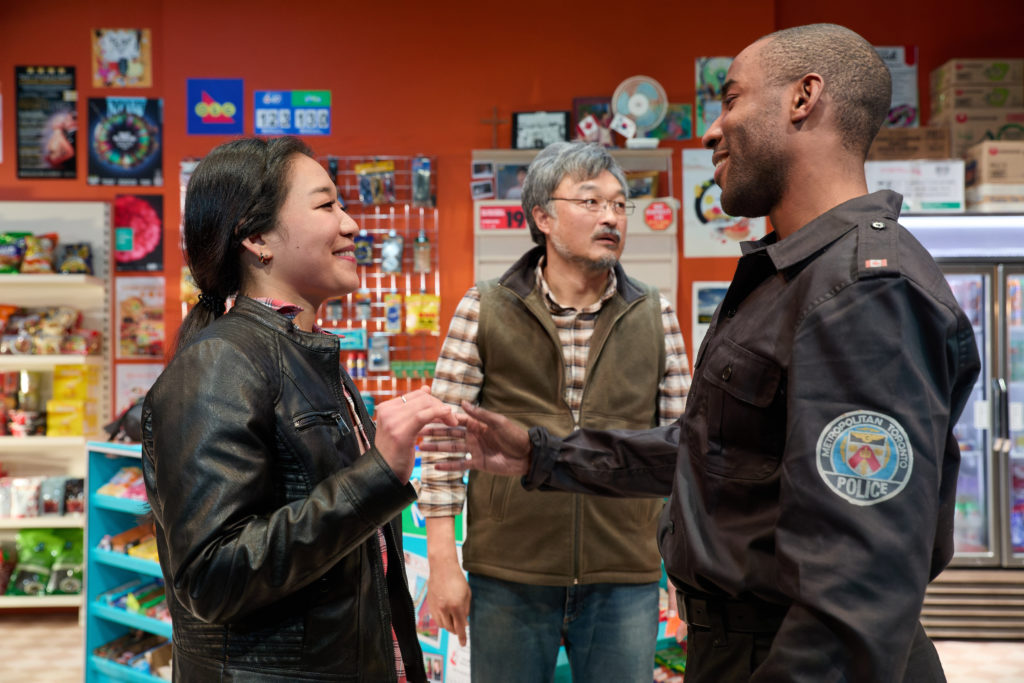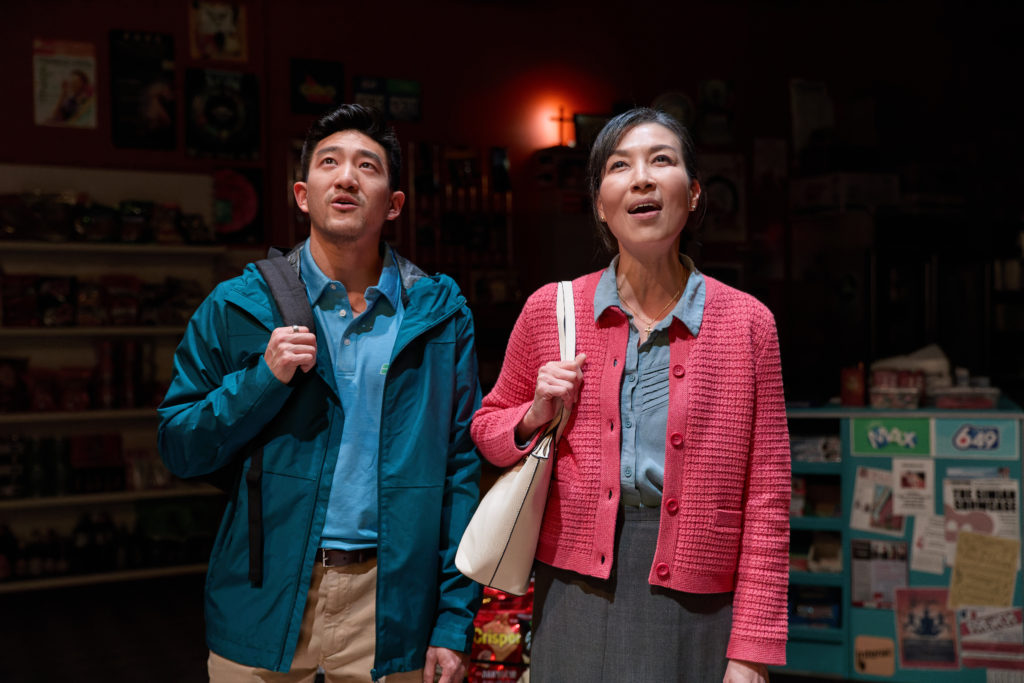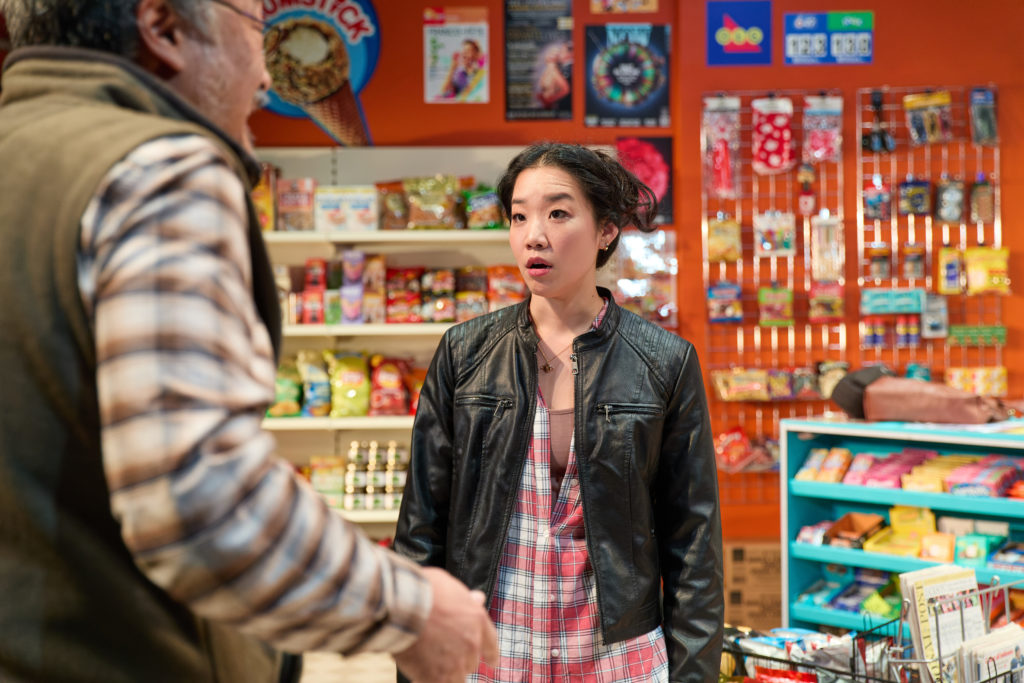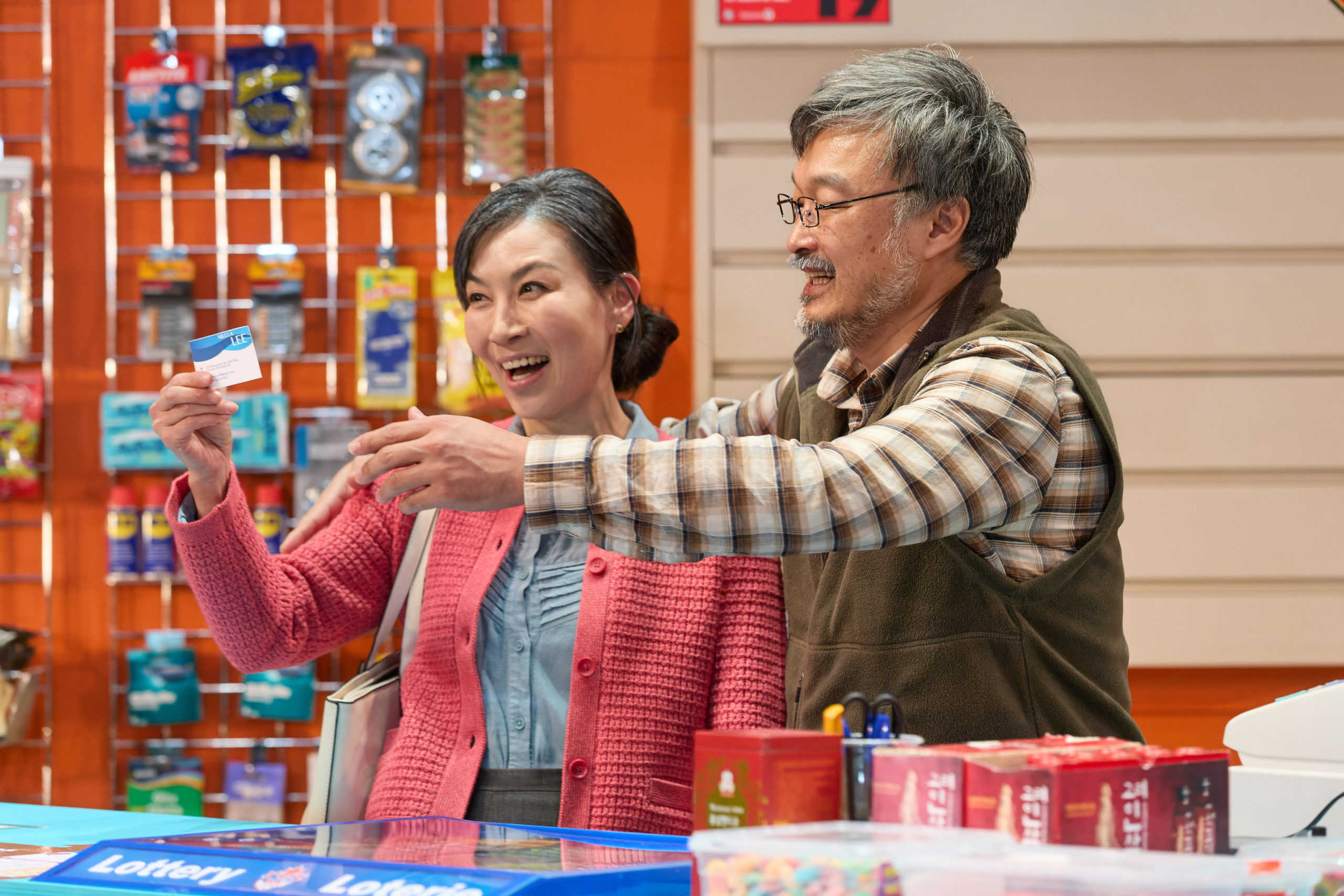Kim’s Convenience – Park Theatre, London
The heartwarming tale of the Kim family goes back to its theatrical roots for a European debut of Kim’s Convenience at North London’s Park Theatre.

Kim’s Convenience
The mark of many a good play is its longevity. Is it topical, speaking to audiences at a moment in time but only revived as a curiosity? Or does it say something new to us each time we see it, revealing some sort of truth or speaking to us in a more fundamental way despite the changes we and the world around us have undergone?
Ins Choi’s Kim’s Convenience seems to be in the latter camp. First staged at the Toronto Fringe Festival in 2011 where it won the Best New Play and Patron’s Pick Awards, it has returned subsequently to both stage and screen. You can watch the screen version, a co-production with the CBC, on Netflix. But this run at North London’s Park Theatre is its first European outing, and also now sees Choi in the role of Appa.
If you’ve seen any of the Netflix series (more likely for UK audiences than having seen it on stage before), you’ll know that Kim’s Convenience revolves, perhaps unsurprisingly, around the Kim family and their convenience store. There is Appa (“Dad”, played as I mentioned by Choi), Umma (“Mum”, played by Namju Go), and their daughter Janet (Jennifer Kim). Son Jung (Brian Law) is at first an absent figure, having left home as a teenager under difficult circumstances. But since the role is cast, I don’t think I’m spoiling too much by saying he makes an appearance. Rounding out the cast is Miles Mitchell who plays all the other roles: customers, an estate agent, and a policeman Janet used to have a crush on.

A Play About Change
To say that Kim’s Convenience is about life in a convenience store, without further qualification, would be to miss the bigger picture entirely. It takes place in a store, but it is about things that are much less tangible than snacks and drinks. Family. Love. Legacy. The challenge for second generation immigrants to straddle cultures and live up to the sacrifices made by their parents. The challenge for parents, perhaps particularly first generation immigrant parents, to let their children leave the nest and follow their own path. An insightful and engaged/engaging programme accompanies the play, and I recommend you buy and read it.
Ultimately the play’s themes come back to change. Changes in their neighbourhood (a new condo development) have Appa thinking about the future of the store and his legacy. That same development sees Umma’s church, location of her happiest memories, close. Janet is at a crossroads and must find her voice and choose a path. Jung, now thinking about fatherhood in a new light, is dissatisfied with his lot and yearns for something more substantial. Change is something we can all relate to, and cement’s Kim’s Convenience’s universal appeal beyond the specific Korean/Canadian/immigrant experiences it speaks to.

A Love Letter of a Play
Having seen versions of these characters before in a much longer format, it was difficult not to compare and contrast. The characters are recognisable, particularly the endearing central relationship between Appa and Janet. But I had to remember to shake off my expectations and remember that a) this version came first and b) this is theatre, so coming to a conclusion in 80 minutes isn’t abrupt, it’s expected. Although perhaps it’s a little bit quick, if not abrupt. But that’s really the only thing which distracted me slightly from the narrative.
There is so much love in this production it’s contagious. Choi’s love for his own parents shines through. His portrayal of Appa in all his complexities is assured, funny, and also honest and three-dimensional. Director Esther Jun actually originated the role of Janet back in 2011, so undoubtedly, like Choi, brings a depth of experience to the project, having explored it from different angles and at different stages in her own life. She manages masterfully the play’s light and shadow, allowing the love to shine through without dipping into sentimentality or cliché. And the set by Mona Camille transports us to the Kims’ cosy familial world, with a few stylish touches to support its theatrical setting.
On these dark winter nights, Kim’s Convenience is like a big warm hug. Audiences share in its glow, and will come away imbued with a little of its positive outlook. It’s also important in terms of representation of ESEA (East and South East Asian) stories, characters and actors: still sadly lacking on British stages. Whether you want to show your support or you loved the Netflix series and want to reconnect with Appa, Umma, Janet and Jung, get booking. Opportunities to see a labour of love of this calibre don’t come along every day.
Salterton Arts Review’s rating: 4/5
Kim’s Convenience on until 10 February 2024. More info here.

